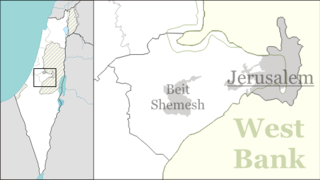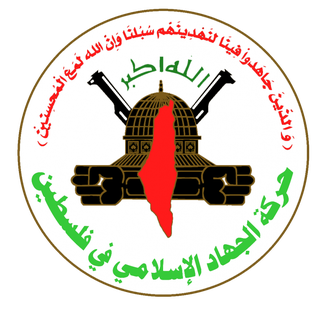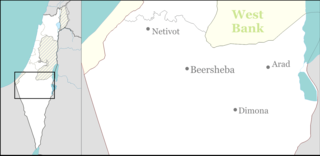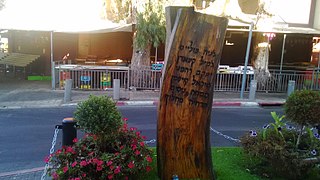Note: The death toll quoted here is just the sum of the listings. There may be many omissions from the list. The human rights organisation B'Tselem has complied statistics of about 600 deaths during 2003 in the occupied territories alone.

The Passover massacre was a suicide bombing carried out by Hamas at the Park Hotel in Netanya, Israel on 27 March 2002, during a Passover seder. Thirty civilians were killed in the attack and 140 were injured. It was the deadliest attack against Israelis during the Second Intifada.
This page is a partial listing of incidents of violence in the Israeli-Palestinian conflict in 2004.

A suicide bombing of a crowded public bus in the Shmuel HaNavi quarter in Jerusalem took place on August 19, 2003. Twenty-four people were killed and over 130 wounded. Many of the victims were children, some of them infants. The Islamist militant group Hamas claimed responsibility for the attack.
As part of the Arab–Israeli conflict, especially during the Second Intifada from 2000 to 2005, Palestinian militant groups used children for suicide bombings. Minors were recruited to attack Israeli targets, both military and civilian. This deliberate involvement of children in armed conflict was condemned by international human rights organizations.
This page is a partial listing of incidents of violence in the Israeli-Palestinian conflict in 2005.

The Islamic Jihad Movement in Palestine, known in the West simply as Palestinian Islamic Jihad (PIJ), is a Palestinian Islamist paramilitary organization formed in 1981.
The following is a partial list of civilian casualties in the Second Intifada. According to the International Institute for Counter-Terrorism, 887 of the 1,137 Israelis killed in attacks from September 2000 – 2005 were civilians. Another 8,341 Israelis were wounded during this period, including 5,676 civilians and 2,665 security forces personnel. The majority of casualties were caused by suicide bombings, though Israelis have also been killed by planted bombs, shootings, stonings, stabbings, lynchings, rockets, and other methods of attack.

The 2008 Dimona bombing was a suicide attack carried out in Dimona, Israel on February 4, 2008 by Hamas. It is believed that Hamas leaders in the Gaza Strip ordered the operation without the knowledge of the Hamas politburo in Damascus.
Events in the year 2005 in Israel.
Events in the year 2003 in Israel.
Events in the year 2001 in Israel.
Events in the year 2007 in the Palestinian territories.
Events in the year 2005 in the Palestinian territories.
Events in the year 2004 in the Palestinian territories.

On August 18, 2011, a series of cross-border attacks with parallel attacks and mutual cover was carried out in southern Israel on Highway 12 near the Egyptian border by a squad of presumably 12 militants in four groups. The attacks occurred after Israel's interior security service Shin Bet had warned of an attack by militants in the region and Israeli troops had been stationed in the area. The militants first opened fire at an Egged No. 392 bus as it was traveling on Highway 12 in the Negev near Eilat. Several minutes later, a bomb was detonated next to an Israeli army patrol along Israel's border with Egypt. In a third attack, an anti-tank missile hit a private vehicle, killing four civilians. Eight Israelis – six civilians, one Yamam special unit police sniper and one Golani Brigade soldier—were killed in the multiple-stage attack. The Israel Defense Forces reported eight attackers killed, and Egyptian security forces reported killing another two.

The Hadera Market bombing was a suicide bombing which occurred on October 26, 2005 at the entrance to the main fruit and vegetable open-air market in Hadera. Seven people were killed in the attack, and 55 were injured, of them five in severe condition.
The August 2012 Sinai attack occurred on 5 August 2012, when armed men ambushed an Egyptian military base in the Sinai Peninsula, killing 16 soldiers and stealing two armored cars, which they used to infiltrate into Israel. The attackers broke through the Kerem Shalom border crossing to Israel, where one of the vehicles exploded. They then engaged in a firefight with soldiers of the Israel Defense Forces (IDF), during which six of the attackers were killed. No Israelis were injured.

A bomb attack was carried out on a bus in the Talpiot neighborhood in Jerusalem on 18 April 2016 at around 18:00. The bomber was a member of Hamas, which however did not claim responsibility. At least 21 people were injured, two critically.







